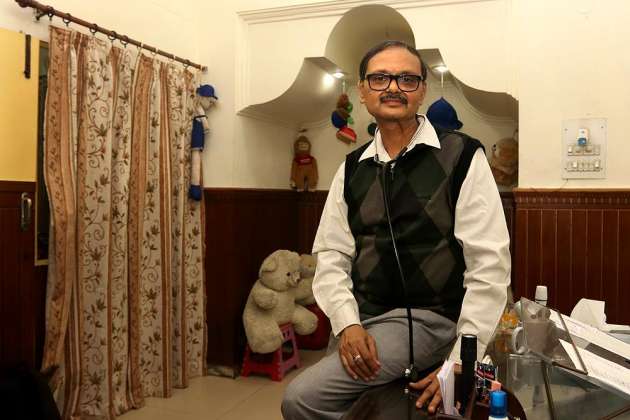
Plight of doctor who revealed vaccine makers’ nexus in immunization program
Dr Vipin Vashishta became a bad boy in the books of many vaccine manufacturing companies when he blew the whistle on how these companies- both Indian and multinational push expensive vaccines into the Indian market. Some of these vaccines, it’s said, don’t even answer any real need. This has created a market that’s worth crores and is booming. This also put India’s immunization program in a different light.
The doctor’s voice of dissent saw him getting banished from the Indian Academy of Paediatrics(IAP).
IAP
The IAP- a private sector body influences 10 to 15% of the immunizations done in India. But that’s just in terms of volumes. The market, in terms of value is practically as big as the immunization program run by the state. A report that appeared on Outlook India suggests the way big vaccine makers influence the immunization in both the public as well as the private domains.
It’s said that even vaccines which are for diseases not prevalent in India are sold in India. For instance, yellow fever vaccines. The Outlook India report mentions that about 2,000 units of the vaccine are sold each month in the subcontinent. This, when, the disease has zero incidence in India, or Asia for that matter. It’s required to be administered only to individuals who travel abroad. Each dose comes at Rs. 1,850.
The doctor gets expelled
Dr, Vashishta became the IAP convenor in 2011.
The IAP recommends the new vaccines which enter the Indian market. This benchmark is followed by paediatricians across the nation. The government also consults the IAP to update the immunization program.
After the whistleblowing, on January 20, 2017, the doctor was expelled from IAP.
The doctor’s revelations have now reached the Parliament. But so far, there has been no move to address the lack of regulations.
Every year, more than 27 million newborns get vaccinated in India. A 10 percent slice would be 2.7 million-which is done via the private sector. The ratio is possibly higher in urban regions.
Most of the vaccines are sourced from foreign companies that have the sole agenda of increasing sales. This attitude gives rise to the trend of pushing cash vaccines- the ones that cost a lot but needn’t be the safest or the most relevant for disease prevention. When bodies like the IAP approve these vaccines, they get a freeway to India.
The Outlook India report says that there are 15 non-essential vaccines actively pushed in the market because they are highly priced.
As opposed to pharmaceuticals and medical devices-which are largely need based, the vaccine market follows another logic. Since these are preventive interventions, irrational fear plays a role. In fact, it’s all but possible that the mere existence and supply of a vaccine can produce demand.
“Several new vaccines are introduced in India that may or may not be required by all children. There is no objective way to prioritise new vaccine introductions. Ideally, it should be guided by our local burden of disease and needs. But companies push these vaccines just to earn higher profits and many paediatricians collaborate with them,” says Yogesh Jain, founder of Jan Swasthya Sahayog and a member of the National Health Mission steering group.
Lack of guidelines
The lack of guidelines and regulations compound the problem.
The IAP’s immunization subcommittee has issued guidelines for some of the vaccines. These vaccines may not be needed for all children and are in the category of “vaccines to be administered after one-to-one discussion with the parents.” These vaccines don’t have enough epidemiological grounds to warrant routine administration.
However, even these guidelines are vague and open to interpretation.
The problem isn’t just with private bodies but the government also lacks proper guidelines for vaccines or how to administer them.
As per existing guidelines, a new vaccine could enter the nation just through a study on 60 people that’s presented to the DGCI. The only requirement is that it should be licensed in any other country. In other words, the firms don’t need to establish disease burden or even the vaccine’s efficacy.
No government regulation is in place to control unneeded vaccines in the private sector either. Curiously enough, though the matter has now reached the Parliament, there seems to be no move towards creating such regulations.
Image credits: outlookindia.com